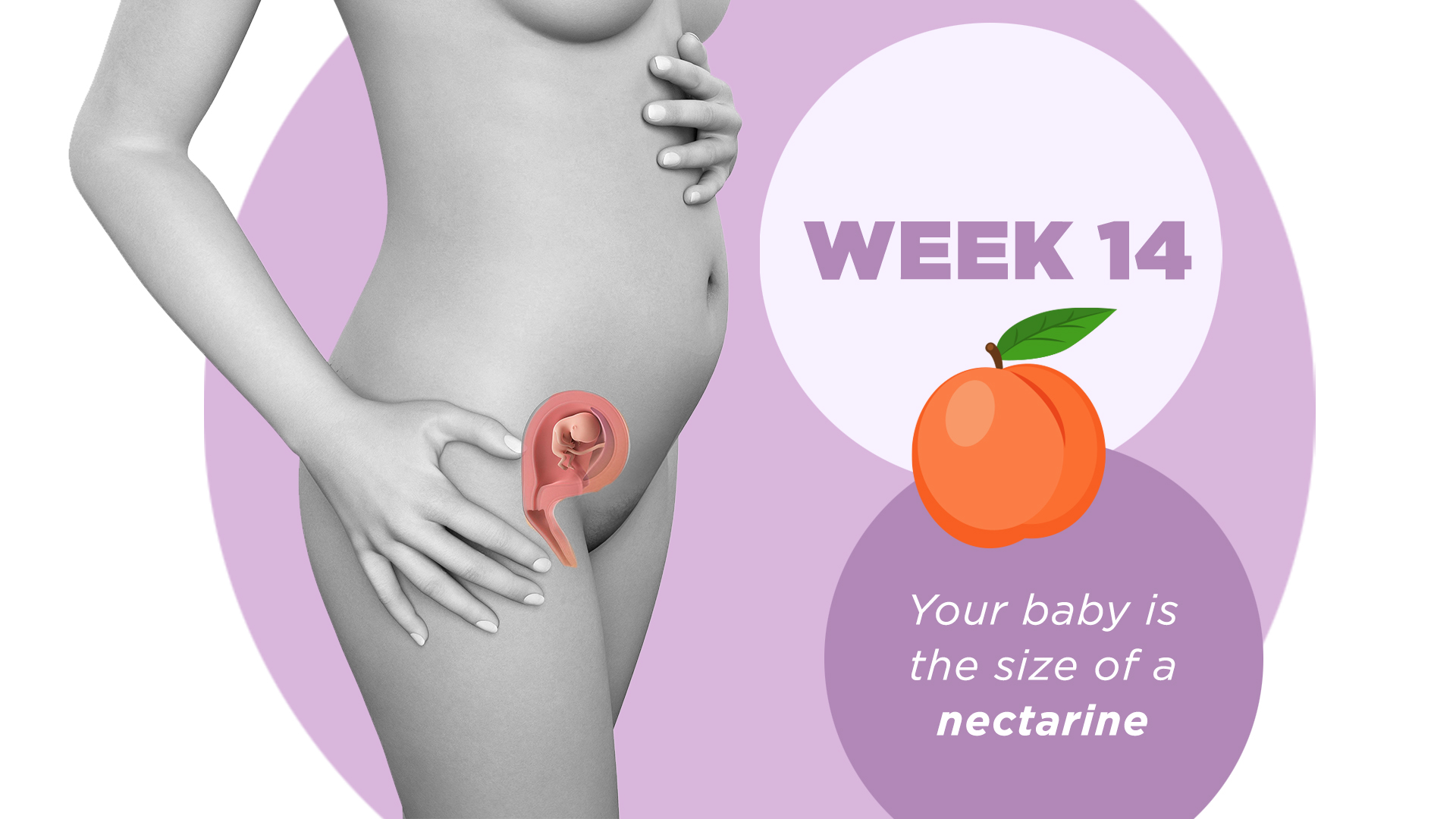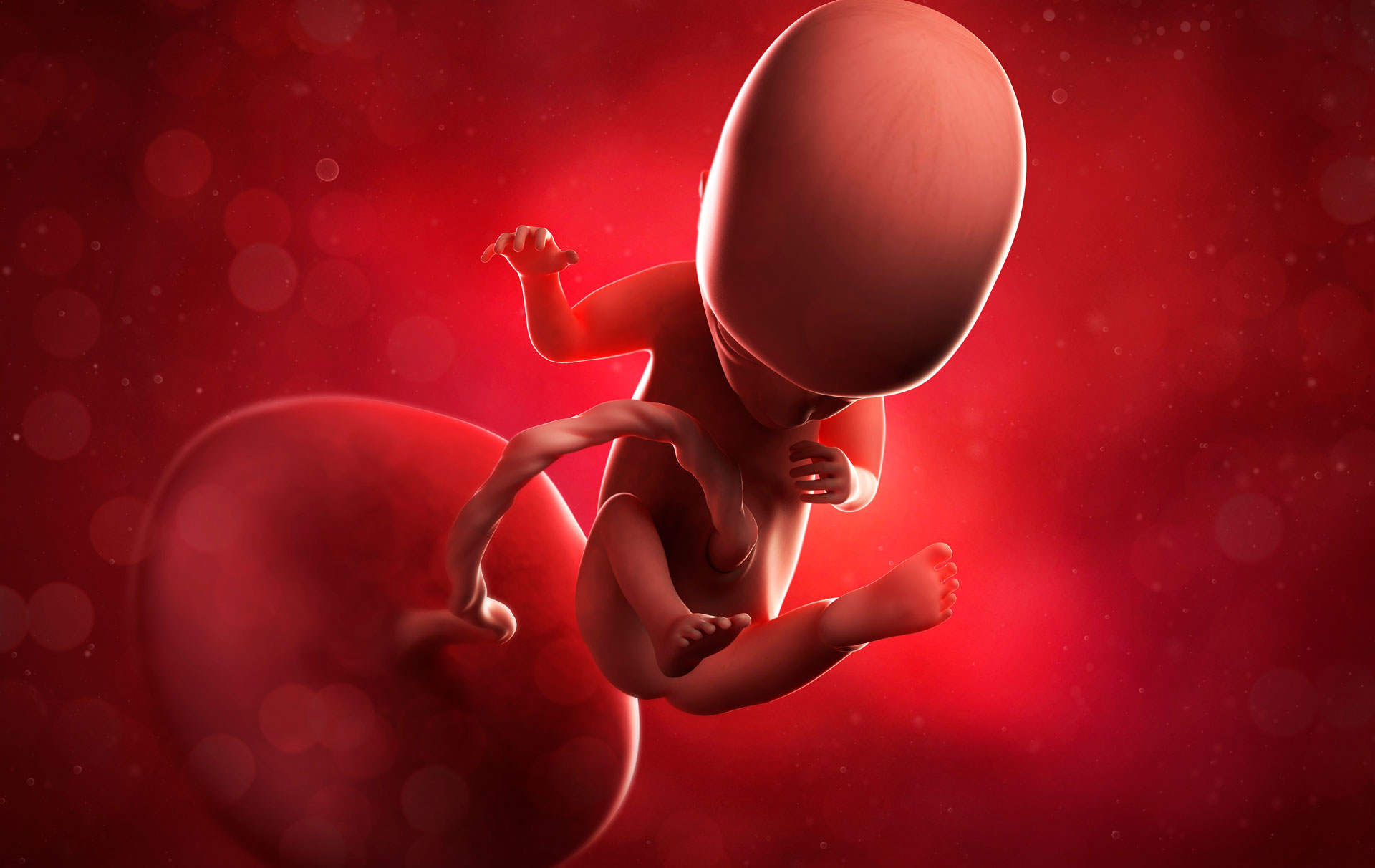14 weeks pregnant - symptoms, fetal development and what to consider
Welcome to your second trimester!

Wondering what being 14 weeks pregnant entails? When you're expecting it's understandable you'll want to know that everything you're experiencing is normal. Here's a round up of everything you need to know at this precious time.
Symptoms at 14 weeks pregnant
Believe it or not that glow of pregnancy isn't a myth. As your baby bump starts to appear suddenly you start to blossom and bloom. Hair changes in pregnancy means it can become thicker, more luscious and shiny, skin looks plump and radiant and you give off a feeling of health and wellbeing.
The reason for your luscious locks is that during pregnancy you shed less hair than normal. The downside is that a surge in pregnancy hormones can mean an unwelcome increase in facial and body hair. Waxing, tweezing and shaving are all safe ways to eliminate unwanted hair but steer clear of permanent solutions such as electrolysis which can cause a darkening of your skin.
Fetal development at 14 weeks pregnant
While the first trimester was all about rapid development, the second is all about rapid growth. Your baby's now about 8.7cm and weighs around 43 grams. Their body is starting to grow fine downy hair known as lanugo which will continue to grow until 26 weeks (this is usually shed before birth.) The purpose of lanugo is to protect your baby's delicate skin and to provide some extra insulation while they build up some body fat. Their bone is continuing to harden and his kidneys are producing urine which means they're peeing into the amniotic fluid.

The changes you should make at 14 weeks pregnant
Even if you were late discovering you are pregnancy, there's still time to have a dating scan, so now's the time to do that. The very latest you can have a nuchal scan is at 14 weeks and one day. After this you will be offered a blood test known as the Quadruple test to screen for abnormalities.
If it hasn't been possible for you to have the combined screening test in early pregnancy, then you'll be offered a special blood test between 14 weeks, two days and 20 weeks and six days. This test is sometimes called the Quadruple Test, and measures four proteins associated with pregnancy. This information is combined with your age and used to work out your individual chance of having a baby with Down's syndrome and Spina Bifida.
If your risk is above one in 150 then you will be offered an amniocentesis which will give a definite diagnosis. This can be carried out between 15-20 weeks of pregnancy. The Quadruple Test may also be offered to women who have already had the Nuchal Scan/Combined Test and been identified as having a high risk of abnormalities before they decide whether or not to have further diagnostic tests.
Parenting advice, hot topics, best buys and family finance tips delivered straight to your inbox.
One simple change to make to keep you feeling healthy during pregnancy is to drink plenty of water. The European Food Safety Authority recommends that women should drink around 1.6 litres of fluids a day (the equivalent of eight glasses a day). During pregnancy this rises by another 300ml. And it is definitely worth heeding their advice.
A good supply of H20 will help keep constipation at bay as well as helping to prevent piles and urine infections. Drinking more water can also help with puffy feet and ankles, while staying hydrated means you are less likely to suffer from headaches.
Also, drinking a glass of milk a day throughout pregnancy can give your baby a head start, quite literally. Studies have already found that drinking milk could boost your baby's IQ. Now a new study has found that a glass of milk a day during pregnancy can make also make your children taller - a height advantage that lasts right through their teens and into adult life.
At 14 weeks pregnant it's still considered say to fly. If you are considering a trip it's still worth chatting with your GP, especially if you've experienced any spotting during the pregnancy or you've had high blood pressure, excessive morning sickness or diabetes.
You might want to consider starting some pelvic floor exercises so that you lower the chances of experiencing incontinence throughout your pregnancy. Try incorporating them into your everyday routine like when you're waiting for the kettle to boil or watching TV.
Further advice and information:
- Visit the NHS for more pregnancy week by week advice
- Download a pregnancy tracker app
- View all our pregnancy week by week guides
Trusted, informative, and empathetic – GoodToKnow is the ultimate online destination for parents. At GoodtoKnow, our mission is 'simple': we're trying to make sense of parenthood. On the site, you'll find everything you need for a happy, healthy family life. Our huge archive of content includes more than 18,000 articles and 1,500 how-to videos. These include expert-backed advice features on parenting, dealing with relationship changes after having a baby, self-care for mums and managing your family finances. We also feature tried-and-tested product reviews and buying recommendations for every stage of family life - from prams and Moses baskets to birthday gifts and top toys.
